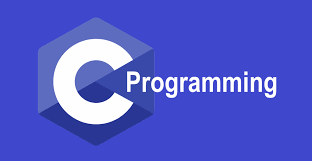
A computer program cannot handle all the tasks by itself, instead, it requests other programs like entities called, functions in C, to get its task done. A function is a self-contained block of statements that perform a coherent task of some kind. Every C program can be thought of as a collection of these functions. A function can also be referred to as a method or a sub-routine or a procedure, etc.
Why use functions:
- Writing a function avoids rewriting the same code over and over, i.e., code reusability increases.
- By using the function, it becomes easier to write programs and keep track of what they are doing.
- If the operation of a program can be divided into separate activities, and each activity is placed in a different function, then each could be written and checked more or less independently.
- Separating the code into modular functions also makes the program easier to design and understand.
Types of Functions
There are two types of functions in C programming:
- Library Functions: are the functions which are declared in the C header files such as scanf(), printf(), gets(), puts(), ceil(), floor() etc.
- User-defined functions: are the functions that are created by the user (programmer), so that he/she can use them as per their requirement. It reduces the complexity of a big program and optimizes the code.
The general syntax of a function:
return-type functionName( parameters)//function definition
{
//Body of function
return statement;
}Return statement:
A function in C may or may not return a value, it depends on the function declaration that whether a return type is mentioned or not. for instance, void type does not return any value, whereas, int, float, etc returns some value on function call.
Example: here we are only printing a value but there is no return type.
void hello()
{
printf("hello coderzpy");
}Example: here we are calculating sum of two integers and returning the sum.
int sum_of_integers()
{
int a=9,b=1;
sum=a+b;
return sum;
}Key facts :
- A c program is a collection of one or more functions.
- If a c program contains only one function, it is main().
- There is no limit on the number of function present in a c program.
- Program execution always begins from the main() function.
- A function can be called any number of times.
- A function can be called from another function, but it cannot be defined by another function.
Example of a simple function:
int max(int x, int y)
{
if (x > y)
return x;
else
return y;
}
// main function that doesn't receive any parameter and
// returns integer.
int main()
{
int a = 10, b = 20;
// Calling above function to find max of 'a' and 'b'
int m = max(a, b);
printf("m is %d", m);
return 0;
}output:
m is 20In the above code, we have created a function to calculate the max value among two integers and return it. The max function is called inside the main function and the returned value gets printed.
Note: also read about the Jump statements in C.
Follow Me
If you like my post please follow me to read my latest post on programming and technology.
https://www.instagram.com/coderz.py/
https://www.facebook.com/coderz.py
Staying up to the mark is what defines me. Hi all! I’m Rabecca Fatima a keen learner, great enthusiast, ready to take new challenges as stepping stones towards flying colors.
Leave a Comment
You must be logged in to post a comment.